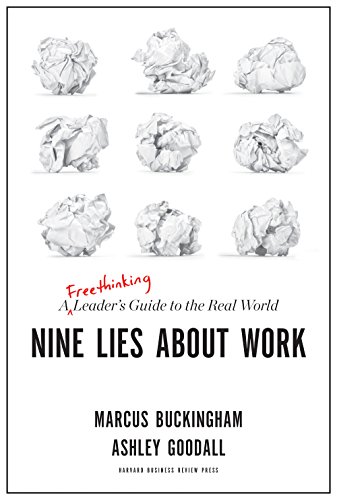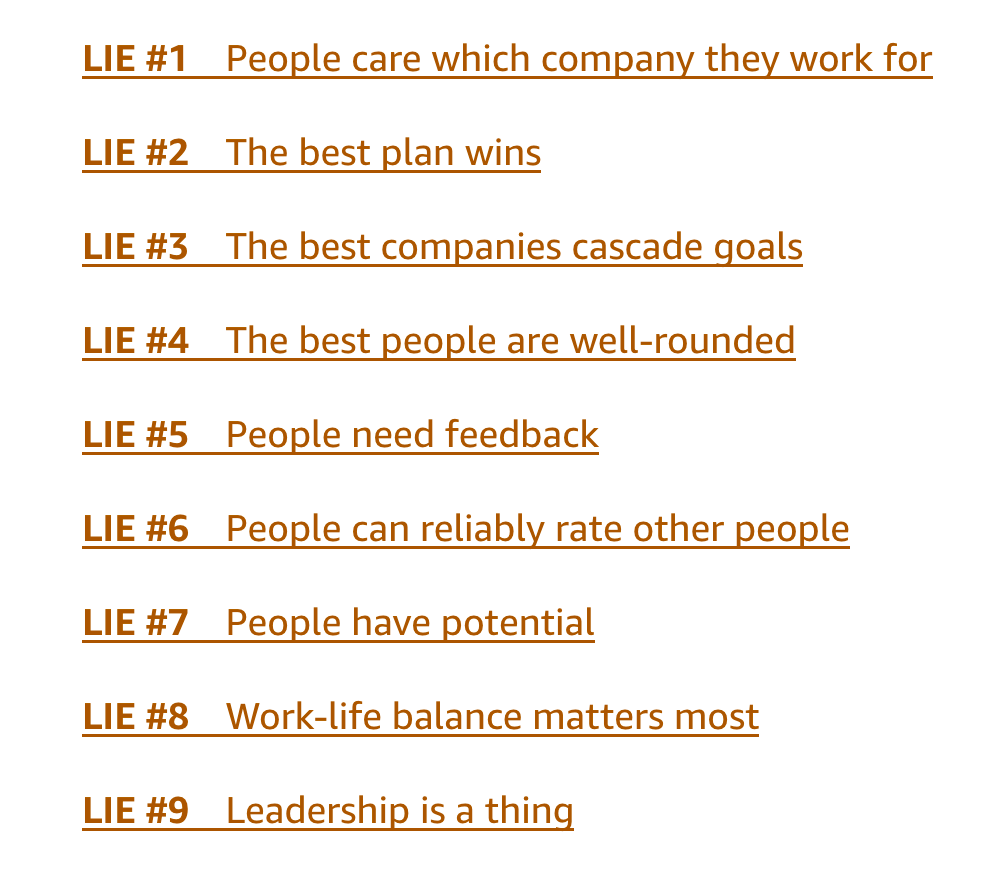
I’ve been using this quote fairly often in presentations because it’s a good reminder to myself and educators that embracing ideas, even ones that seem to contradict our beliefs or thinking can be joyful. As educators, modelling this might be one of the essential gifts we can share with students

I’ve been a fan of Marcus Buckingham and his work around strengths and the title of this book intrigued me. I’ve been told on a few occasions that I”m a bit of a s*&T disturber. Depending on the person or the context it’s unclear whether this is a compliment or not but under the guise of “strengths” that’s what I take it as. This book aligns well with that character trait.
The chapter titles alone might intrigue you:

The book is based on a large research sample of thousands of employees in hundreds of companies. Lie #1 hits you pretty hard. Swap out “company” for “school district” and you have a very interesting conversation. The message is pretty simple. People’s experience at work is not based on a companies values or mission but on the individual teams they work on. The role of a company’s culture is much less impactful that I previously would have thought. I’m currently rethinking some things.
Without going into a full on review, I’ll just say it’s making me think about many potential lies that have become fairly commonplace in schools and education. Over the next while, I plan to explore these both in writing and in presentations.
Lie # 8 was particularly telling. Work-Life Balance Matters Most.
…we humans appear to have had a thing for balance for a long, long while. To us, it has always seemed like the right, the noble, the wise, and the healthy state for which we should all strive. And we can speculate that the difficulty of achieving it has added in some way to its allure—it’s another of those things, like working to remedy our faults, that’s always a work in progress, that’s fantastically hard to achieve in practice.
Buckingham, Marcus. Nine Lies About Work . Harvard Business Review Press. Kindle Edition.
I kind of hate the word “balance”, adding it to the growing list of words I think are poorly used in education (rigor, accountability, busy, et al). It’s overused, simplistic and often used as a cop-out. When talking about food, “it’s all about balance”. No, it isn’t. Eating better, more nutritious food more often is better. You don’t balance it with sugar or fat. When talking about how we spend our time, “it’s all about balance” I don’t think it is. Balance is sometimes used to justify bad habits or behaviour. I’m not saying I always make the right choices but defaulting to balance as a response to complex issues is often dissatisfying. Saying the answer is both, also doesn’t cut it for me. I like what Buckingham says:
Neither you nor your life are in balance, nor will you ever be. Instead you are a unique creature who takes inputs from the world, metabolizes them in some way, produces something useful, and does so in such a way that you can keep doing it. At least, you are when you’re healthy, when you’re at your best, when you are contributing all that your talents allow you to. When you’re flourishing you are acting on the world and it on you. Your world offers up to you raw material—activities, situations, outcomes—in all parts of your life, and some of this raw material invigorates you and gives you energy. You are at your healthiest when you find this particular kind of raw material, draw it in, allow it to feed you, and use it to contribute something—and when that contribution actually seems to leave you with more energy, not less.
Buckingham, Marcus. Nine Lies About Work . Harvard Business Review Press. Kindle Edition.
The problem with these lies and others is that they become so pervasive it’s really hard to see past them. No question, it takes some confidence to be able to question your own biases and beliefs, particularly if you’ve advocated for them publicly. Changing our minds or perspective is not a sign of weakness but rather a signal of a thinking, free-thinking human being. We need more of these kind humans.